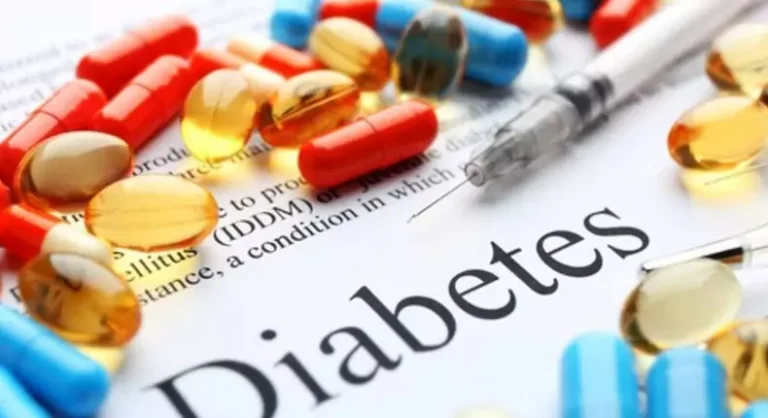Diabetes has emerged as a major health concern in Nigeria, with its prevalence steadily increasing and management becoming more challenging. Unfortunately, this situation is exacerbated by widespread underdiagnosis, high treatment costs, and systemic inefficiencies within the healthcare sector.
Moreover, the growing number of diabetes cases in Nigeria is attributed to a combination of genetic predispositions and lifestyle changes, such as unhealthy diets and physical inactivity.
According to the Access to Medicine Foundation (ATMF), approximately 3.5 million Nigerians are living with diabetes. However, this figure is likely underestimated due to low diagnosis rates.
The ATMF estimates that, as of 2021, 2.7 per cent of adults aged 20–79 were living with diabetes.
Furthermore, the economic burden of the disease in Africa, including Nigeria, is immense. Diabetes-related healthcare expenditures across the continent are estimated to total approximately $12.5 billion annually.
The World Health Organisation (WHO) notes that this financial strain is further aggravated by rising treatment costs, limited access to affordable healthcare, and an increasing number of cases.
As a result, there is an urgent need for comprehensive strategies to address both prevention and treatment.
In Nigeria, diabetes patients frequently pay for their care out-of-pocket, with average annual expenses reaching $500 per person. Consequently, this financial burden significantly impacts families and limits access to essential medications like insulin.
Specifically, Type 2 diabetes, the most prevalent form in Nigeria, is linked to urbanisation, unhealthy diets, and sedentary lifestyles. On the other hand, Type 1 diabetes, though less common, requires lifelong insulin therapy, presenting unique challenges, especially for children.
To address these concerns, the Diabetes Association of Nigeria (DAN) has raised alarms over the rising costs of the care of the disease, which now threaten the well-being of over 6 million Nigerians diagnosed with the condition.
At an event commemorating World Diabetes Day on 14 November, DAN highlighted the need for affordable treatment options. By reducing the severe physical, mental, and economic toll of diabetes on Nigerians, the association hopes to improve the quality of life for those affected.
During the event, Dr Ejiofor Ugwu, National President of DAN, emphasised the importance of accessible and affordable diabetes care to safeguard millions of lives. He cautioned that untreated diabetes could result in serious complications, including cardiovascular diseases, kidney failure, nerve damage, vision loss, limb amputations, and premature death.
Nevertheless, the association identified several barriers to diabetes management in Nigeria, particularly within the healthcare system.
For example, access to affordable care remains limited, while insulin, primarily supplied by global manufacturers such as Eli Lilly, Novo Nordisk, and Sanofi is often prohibitively expensive. In addition, health experts have warned that diabetes in Nigeria is rapidly reaching epidemic levels.
Therefore, coordinated efforts from the government, healthcare providers, and community stakeholders are urgently needed.
Experts believe that addressing these barriers, improving public awareness, and fostering strategic partnerships are crucial steps in alleviating the burden of diabetes.
For instance, in Lagos State, the Commissioner for Health, Prof. Akin Abayomi, underscored the importance of effective diabetes management.
He explained that the body’s inability to process sugar properly leads to its accumulation, which in turn causes damage to various organs.
Moreover, he noted that there are two primary types of diabetes: one that occurs in youth and another in older age, with the latter being more prevalent.
Prof. Abayomi attributed these conditions to a combination of genetic and environmental factors.
Meanwhile, Osi Uti, a diabetes survivor, shared his journey of being diagnosed 10 years ago.
He recounted how lifestyle adjustments, such as adopting a healthier diet and engaging in regular exercise, helped him regain control of his health.
Now an advocate, Uti calls for greater awareness and education on diabetes management in Nigeria.
In addition to these individual stories, various organisations and states have taken steps to address diabetes awareness and management.
For example, the Ahmed Bola Oduleye Charity (ABOC) Foundation has encouraged residents of Nasarawa State to engage in regular exercise.
The foundation’s CEO, Mr Ahmed Oduleye, emphasised the importance of monitoring blood sugar levels, blood pressure, and Body Mass Index (BMI) to maintain good health.
Similarly, in Lokoja, Dr Olorunfemi Adebayo, a Consultant Endocrinologist at the Federal Teaching Hospital Lokoja, called on the government to tackle the proliferation of counterfeit diabetes medications.
Additionally, he highlighted the importance of regular health screenings for early detection, pointing out that many individuals live with diabetes for years without being diagnosed.
“By the time they are diagnosed, complications such as eye or kidney damage may have already developed,” he said.
In a related development, the Public and Private Development Centre (PPDC) has urged Nigerians to prioritise healthy living and regular health checks.
Also, the organisation called on the government to adopt a multi-faceted approach to tackle the growing diabetes crisis.
Such an approach would include raising awareness, providing education, and improving access to healthcare services.
Likewise, at the University College Hospital in Ibadan, Dr Jokotade Adeleye, a Consultant Endocrinologist, called for collaborative efforts to address the diabetes crisis.
She recommended integrated, multi-sectoral interventions at all levels of care, alongside proper training for healthcare personnel.
To curb the rising number of diabetes cases, the Federal Government has introduced a tax on Sugar-Sweetened Beverages (SSBs).
According to Prof. Ali Pate, Coordinating Minister of Health and Social Welfare, the tax aims to reduce the consumption of sugary drinks, thereby lowering obesity rates and related diseases.
In conclusion, as Nigeria’s diabetes burden continues to grow, stakeholders are calling for urgent action across all sectors of society.
While government measures, such as the SSB tax, represent a step in the right direction, they also emphasise that individuals must take responsibility for their health.
By raising public awareness, ensuring access to affordable care, and fostering collaboration among stakeholders, Nigeria can more effectively manage and reduce the impact of diabetes on its population.
NANFeatures


